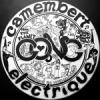讯息: 34
语言: English
mnlg (显示个人资料) 2008年7月29日上午7:31:47
After months and months, I finally found this link again, which I meant to add much earlier in the debate. In case it still interests anyone, here it is.
It is perhaps a bit over the top but it presents a few interesting points.
http://www.olimu.com/Journalism/Texts/Commentary...
It is perhaps a bit over the top but it presents a few interesting points.
http://www.olimu.com/Journalism/Texts/Commentary...
erinja (显示个人资料) 2008年7月29日下午1:22:34
mnlg:It is perhaps a bit over the top but it presents a few interesting points.Interesting article. I can understand why the author is complaining about calling Jerusalem "Yerushalayim" or "Al-Quds"; to some extent, an international city will have its name translated into foreign languages, so we say Jerusalem in English-speaking countries, just as other countries have their names for the city.
http://www.olimu.com/Journalism/Texts/Commentary...
I think the situation is a little different in the case of Beijing and the Roma. The word "Gypsy" is often used as a pejorative, and is now widely considered offensive. The name itself is based on the (wrong) assumption that the Roma came from Egypt. I think most people object when the common word to describe them is offensive; that's why in this case, I prefer "Rom", "Roma", or "Romany" to "gypsy".
In the case of Beijing, the name change came not because of some effort to make the name Chinese, but because names of Chinese cities were being standardized under a new romanization system. The old system used in the English-speaking world was called the Wade-Giles system. Then when the People's Republic of China came into being, they created a new system, called pinyin. Peking is the name of the city under the Wade-Giles system, Beijing is the pinyin name. In my opinion, each system has its plusses and minuses, but I tend to prefer pinyin. To me, it is more intuitive.
Fun fact - you can often guess whether a Chinese person comes from the Mainland or Taiwan based on the spelling of their name. If they have an Hs in their name ("Hsin") almost certainly they are Taiwanese, as that is a Wade-Giles spelling. If they have a Zh, probably they are from the mainland ("Zhang"). Zhang and Chang are the same name, spelled differently. If someone's name includes eung or a kw or ends in a k (Cheung, Kwok), you can make a pretty good guess that they (or their family) comes from somewhere that speaks Cantonese (probably around Hong Kong or Guangdong), since these spellings comes from the Yale romanization system, which is popular for Cantonese.
jchthys (显示个人资料) 2009年8月22日下午3:37:58
pacepacapaco:See the picture.Good thing Esperanto has consistent stress, otherwise the English and French Canadians could find a new thing to argue about: Ka'nado or Kanado',Random and irrelevant: I want a t-shirt that says "You're in America; speak Oneida/Tsėhesenėstsestotse!" or something. I'm just sick of hearing "You're in America; speak English!"Kana'do is such a nice compromise, and it matches the original Iroquois word better!




